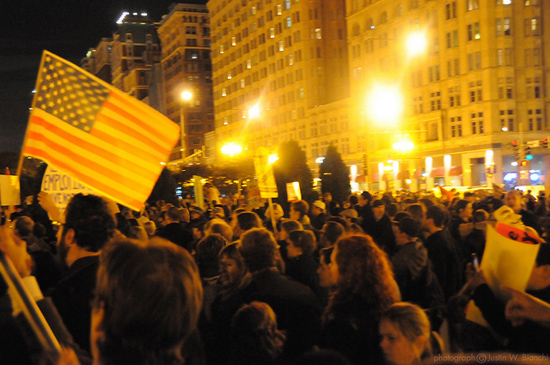
Red, White and Femme: Straight Talk With Cunt Author Inga Muscio3
Posted In Activism,Blog,Books,Entertainment,GLBT,Interviews,Love,Politics,Relationships,Sex,Society

Inga Muscio is the highly acclaimed, and equally controversial (and unapologetic) feminist author of Cunt: A Declaration of Independence, Autobiography of a Blue-Eyed Devil: My Life and Times in a Racist, Imperialist Society, and her latest, Rose: Love in Violent Times.
In the current political landscape, women’s healthcare rights are under attack daily by new cockeyed legislation. Our social and sexual freedoms are being preyed upon by fervently conservative Republicans. The youth of our country are also at risk — whether because sex ed is being taken out of schools in favor of abstinence-only education, or because bullying by other kids is resulting in suicide. The Right’s proposed answer? “Don’t Say Gay” bills.
What better time to visit the themes of Muscio’s literary toils, and pick her brain about everything from sex, race and violence, to female friendships and that dude, The Pope.
Darrah de jour: You are one of the most important and accessible feminist writers of the 21st century. Your seminal book Cunt has changed the lives of so many women by promoting body-love, pro-sex attitudes, and by embracing LGBTQ life-styles — even when, as you state, a lesbian’s desires include wanting to roll in the hay with the opposite sex on occasion. What inspired you to pen Cunt? And how have your views changed in the last ten years?
Inga Muscio: My views have expanded and mutated some, but not earth-shatteringly so. I’d like to qualify that it’s my desire about rolling in the hay with whatever gender. I can’t speak for the general lesbian population on that one. I believe it was Cynthia Nixon who got into a lot of trouble for saying that being a lesbian was a choice for her. I’ve gotten into trouble for saying that as well. And I understand why. The bible-thumpy closet homos get all in a lather about gayness being a choice and with the right amount of prayer and support, one can simply change their mind and no longer be gay. So, if you have people out there saying, “Oh yes, lesbianism is a choice for me,” then you’rr gonna feel a bit betrayed. But the thing is, that’s kind of, in a way, the whole crux of sexuality. It exists on an ever-changing continuum, which is something bible-thumpy closet homos can inherently, never embrace.
What inspired Cunt? Two things. First off was ‘The Mistake,’ which I briefly wrote about in Cunt. Early in my writing career at a weekly newspaper, I accidentally turned in an article to my editor (this is back in the day when actual pieces of paper were exchanged amongst such individuals) and it had the title, the word count and my name at the top. Only I left out the “o” in word count. I didn’t notice “The Mistake: until my editor pointed it out to me. After the newspaper and I parted ways, I sat on my kitchen floor, with all of my articles surrounding me in a 180 degree circle. And I was thinking, “Well, I’ve always wanted to write a book.”
Thing #2 is related to your next question. I’d spent a good part of a decade stewing in this primordial rage, after my mother told me she’d been raped by two men when she was nine years old. I wanted to hunt them down and tear them apart with my bare hands, gouge out their eyes, stomp on their balls. This happened in London in the late 1940s, when she was walking home from school. She had no idea who they were. There was no way for me to satiate my vengeance fantasies on the men, themselves.
And I realized, it wasn’t about these specific men, per sé. Or my mother, or my childhood — which was 100%, 24-7 themed around this far away act of violence. I saw the hugeness of rape. How many childhood’s were shaped by violence? How have the traumas of abuse, rape, slavery and genocide echoed through each passing generation? How does war — and the mass rape it usually engenders — affect a population? I saw this act of violence committed against my mother as one minuscule facet of what I eventually saw as a fractalized, kaleidoscopic panorama. Cunt became my way of setting light to that view. It was, and remains, an incredibly satisfying means of exacting vengeance.
Ddj: In Cunt, you describe one evening where a conversation with your mother about rape changed your relationship with her. The bond between mother and daughter is a complex one. Why do you think so many women have difficulties getting close to their moms?
IM: Here we have another continuum. Some moms are not affectionate. Some are too affectionate. Some daughters are dying for their mother’s approval and their mother will never, ever give it. Some daughters could give a fuck what their mother’s think, and their mom’s doormatishly consider them the most beautiful being ever to grace this planet’s hull. Such a mixed bag.
If you want to talk just general indoctrination, there exists a lot of jealousy between women in patriarchal cultures and this does not spare relationships just because of strong blood bonds.
Ddj: We are living in a very unique time, where the GOP is trying to take women back into the Dark Ages. Their aims include: making contraception difficult and expensive to ascertain; adding additional (and sometimes painful, invasive and expensive) hoops for a woman to jump through to terminate her pregnancy; and trying to make women socially and financially subservient to men, by allowing her to be fired for using contraception — among other wonky Santorum-sanctioned ideas. Why do you think the pendulum is swinging backward instead of forward? And, what would the Muscio plan of attack be if you were organizing a retaliation?
IM: Women’s bodies are difficult to control. So is the earth, itself. So are the many people on the planet who don’t feel like being controlled, such as Palestinians, indigenous people in the US, aboriginal people in Australia, Tibetans, black people, and homos the world over. So my plan involves a lot of education and making these connections. If you’re well versed in the oppression of women, great. Now it’s time to learn about the oppression of everyone and everything else. If you understand how the people you identify with are controlled, move out of your sphere and apprehend how everyone else is controlled. Otherwise, we are all small groups of people looking only to our own self-interests, and meanwhile, do not understand the true nature of our adversary. In war, this is not a powerful position.
We see this on display in the fractured Occupy movement, where the name itself is highly offensive to indigenous people. Those within the movement who hold power do not seem willing to apprehend the gravity of this, thus weakening the very thing they are trying to make strong. How can indigenous people — this includes Mexicans, Chicanos and native folks — really, heart and soul get behind the concept of an occupation when it is something their families have been struggling with for over 500 years? And without the people who come from this land – without the full backing of people of color, homos, and white women – the Occupy movement, for example, will not get anywhere. When we remove all the things that keep us in racist / misogynist / xenophobic mindsets, then we can start talking revolution.
Ddj: Many conservatives are rallying for the removal of sex-ed in public schools. If sex education is removed from public schools, in favor of abstinence only education, or none at all, what kind of effect do you think this will have on children, teens and the future?
IM: Pregnancy rates will skyrocket. Date, gang, and sexual abuse rape will reach epidemic proportions, as if they haven’t already. More young women will go to jail for throwing their baby in the trashcan in Olive Garden during their lunch break or in the school bathroom toilet. Poverty, homelessness, hunger. The young men who actually try to stand up and be fathers for their children will most likely join the military and put their life on the line. The children of these young people will be more available to abuse from relatives, day care center workers, baby sitters or family friends because the parents both have to work. Deaths from homemade abortions will rise. Adoptions will also rise. Good times.
Ddj: South Carolina Governor Vikki Haley recently proclaimed that “women don’t care about contraception. They care about jobs, the economy, and raising their families.” What would you say to Ms. Haley if you had the chance?
IM: I’d say, “That’s a fascinating talking point you learned at one of your dazzle camouflage meetings. If it was based in reality it would not work nearly as well as it does.”
Ddj: Two and a Half Mem co-creator Lee Aronsohn came under fire last month for what many claimed were sexist comments. In response to a reporter’s inquiry about current television programming, Aronsohn replied, “We are reaching peak vagina on television, to the point of labia saturation,” referring to female-centric sitcoms like 2 Broke Girls and Whitney. He went on, “Enough, ladies. I get it, you have periods.” What is your response to this bravado? Why do you think some men still fear women and women’s bodies? How does this affect women?
IM: I see, since Lee Aronsohn knows we have periods, then periods are due to cease existing. When will we reach peak penis in any realm of existence? In architecture? Sitcom plots? Political campaigns? There are very few things in this world — from structures of hierarchy to the cadence of songs — that isn’t penis shaped in some way or another. Hello, war? Bullets, missiles, warheads. Please. I can’t leave my home without being inundated by the realities of penises. Enough, gentlemen, I get it, you (hope to god you) have hard-ons.
I think most men fear women’s bodies because they are indoctrinated to mistrust nature. These are the nice, well-intentioned men. The ones who feel compelled to control nature are a whole other problem. The sexiest men are the ones who’ve faced all of those fears. I think all this affects women by controlling us. Many of our thoughts, desires, aspirations, fears and traumas are also very penis shaped.
Ddj: Your latest book Rose: Love in Violent Times, explores women and violence. In it, you write, “Rape is so much more than the mainstream definition of ‘forced sexual intercourse.’ Rape is murdering part or all of someone’s soul. Snuffing out someone’s power.” While we do not condone honor killings in the US (though some have occurred in families that have relocated here), our attitudes do include blame, judgment, and inaction. When Sarah Palin was mayor of Wasilla, the city billed sexual assault victims through their insurance companies for the cost of rape kits. Others try to differentiate “forcible rape” from incest, as though the results – the stripping of dignity, the violation – were somehow different. Where do you think these attitudes stem from?
IM: Funny you should ask, because it all comes from the above-mentioned penis-based thought. Men who create and pass laws don’t think rape is all that bad. Unless it happens to their daughters, of course. No one dies. It’s as close to a victimless crime as you can get without actually being victimless. Somewhere in the dark heart of a man’s penis, there is the possibility that the woman really wanted it. There is also the problem of slavery and the genocide of native people that we’ve yet to face. We come from a long history of rape being condoned. If a senator’s great-grandfather owned slaves, and raped the women, it was passed through the family that rape was just boys having a little fun. We really, really do have a lot of rapists in our history. And child molesters. So the laws reflect this. Any rhetoric that victimizes/demonizes those who oppose this reality isn’t warmly welcomed. Especially when it comes from a woman. That really is the bottom line throughout our culture: we attack/demonize the victim. Without the victim opening their mouth, there would be no problem. This applies to whistleblowers, environmentalists, animal rights activists, labor unions, incarcerated prison rights activists, un-closeted breastfeeding mothers, and pretty much everyone else who bucks the system of total control.
Ddj: I often engage in conversations with the men in my life (I have an abundance of fantastic male friends) about the challenges they face with the current state of gender dynamics, third wave feminism (or are we now in fourth, arguably?) and the polarization of subjects like abortion and rape. What can the good guys out there do to better understand issues affecting women right now?
IM: I really find it beneficial to immerse myself in the art, films, music, and writing of any demographic I’d like to better understand. See if they could commit to doing this for a year. Your man pals will come out of it with a pretty nice understanding. But not just feminists. Tell them to read biographies about beauty queens and cheerleaders, about powerful women such a Barbara Bush, Imelda Marcos or Margaret Thatcher. Watch independent films by women of color. Just grab any and every CD by a woman at the library. Only go to local shows or openings by women. Tell them to be sure to include transgender women. And good job putting the lid down after they pee.
Ddj: Relationships between women can be intense. What do you think is the biggest challenge women face in having authentic, intimate friendships with each other?
IM: Mirroring competitive models of power. It goes against our nature and wears down out spirit, and so we set upon each other in internecine and highly damaging ways.
Ddj: Not long after Prop 8 was deemed unconstitutional in California, North Carolina voters approved amending their state constitution to ban gay marriage. Last week, President Obama spoke publicly in favor of same sex couples‘ right to wed. Eight states in the US have legalized same sex marriage. Do you think marriage equality will provide equal rights for the gay community? If not, what issue trumps it?
IM: I do think it is a big and important thing. So many people do not enjoy the benefits of marriage. I’ve heard of partners of 20 years being barred from their beloved’s deathbed by homophobic family members who never approved of the relationship. Or firemen whose surviving spouse is not eligible for widow’s benefits. It’s truly horrifying. That being said, I’d like to see gays passionately fighting for the rights of black people, or putting energy into the water or fishing rights that native people are fighting for. I’d like to see homos branch out a bit. All of the issues facing humanity today are important. It’s difficult to prioritize.
Ddj: Pope Benedict XVI said on April 5th that women have no place representing God as ordained priests and rebuked priests who support ending celibacy. Do you think women who ascribe to Catholicism and similar organized religions that oppress women and create/support violent and divisive laws against them are self-loathing? What say you about the myth of female purity (let’s not forget Mother Mary had children after Jesus), and that men can only receive salvation through a sexless woman devoid of physical passion?
IM: The reason he was made Pope was because all of this child sex abuse stuff is constantly erupting and he is the person most experienced in covering it up. The Pope is a total psychopath and anything that comes out of his mouth is guaranteed to be psychopathic.
This whole female purity thing is the Catholic Church’s grudging way of accepting the fact that women must exist on the planet. This is an enclave of men who live in an almost all-male city within a city, who propound to be the word of a male god who never consorted with a woman to produce his child. Is he, in fact, god because he managed this feat? Is this not the holiest thing conceivable (no pun intended), to have a son without touching a woman? Now that’s some shit to aspire to, huh?
These men are absolutely out of their minds. These are the fellas who helped “discover” the new world and sanctified the total subjugation of entire Indian nations. They’re behind a lot of the beliefs in this country that keep people divided and conquered. I look forward to their downfall with bated breath.
Ddj: What are you currently working on?
IM: I’m re-working Autobiography of a Blue-Eyed Devil, which will be published next year.
Find Inga online at ingalagringa.com and facebook.com/inga.muscio.7
Darrah de jour is a freelance journalist and consultant, with a focus on sensuality, environmentalism, and fearless women in the media. Her lifestyle writing and celebrity interviews have appeared in Marie Claire, Esquire and W, among others. She contributes author and filmmaker interviews to The Rumpus. Darrah’s sex and sensuality column for SuicideGirls, “Red, White and Femme: Strapped With A Brain – And A Vagina,” takes a fresh look at females in America. Darrah is also a regular guest co-hosts on SuicideGirls Radio, which is broadcast on Sunday nights on Indie 1031.com/. She lives in LA with her doggie Oscar Wilde. For more of Darrah visit Darrahdejour.com/, and friend / folow her on Facebook and Twitter.
A version of this interview originally appeared in The Rumpus.






